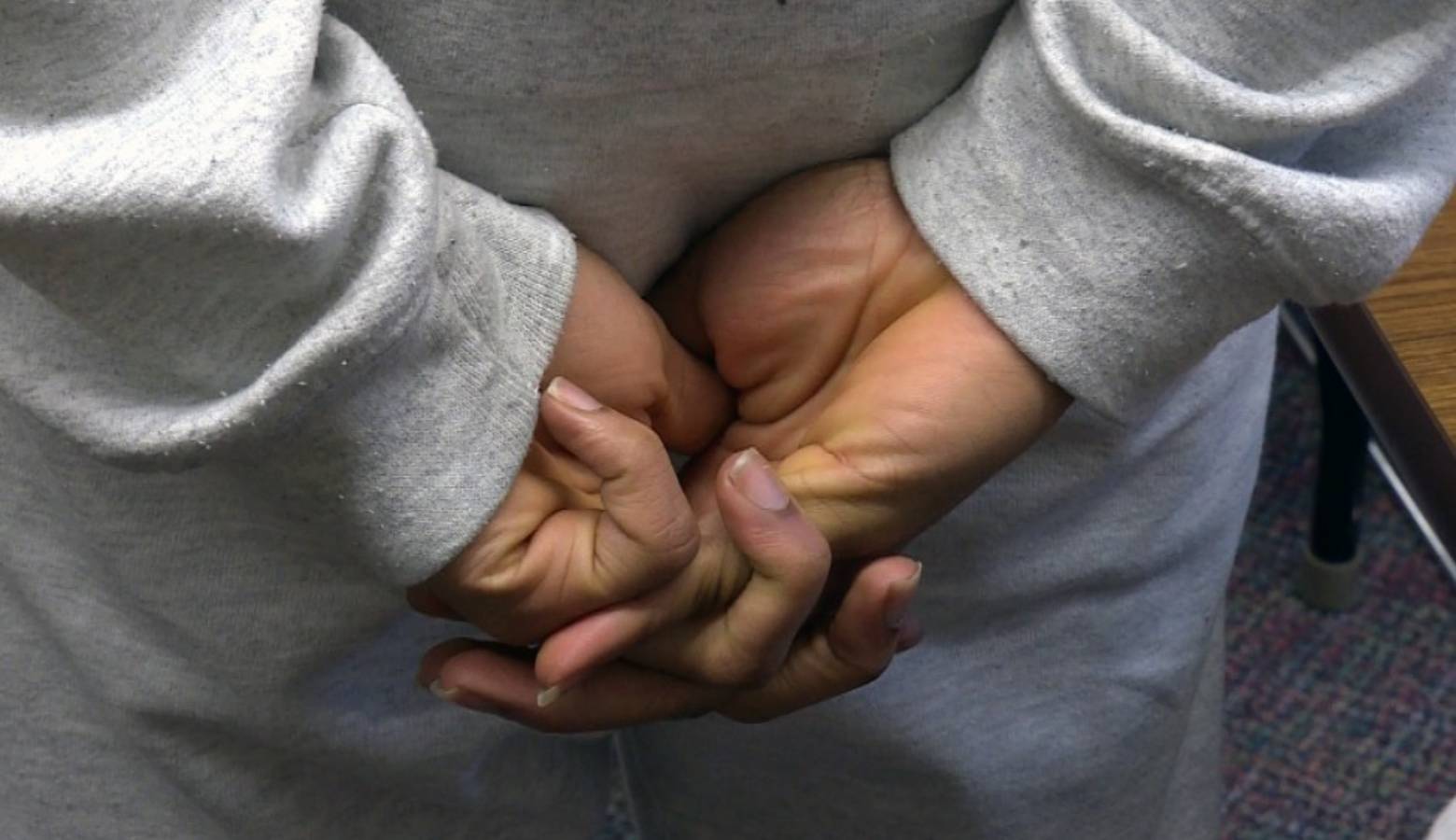Program Gives Kids In Juvenile Detention Lesson In Legal Rights

Some kids making their way through Indiana’s juvenile justice system are slipping through the cracks. They’re supposed to get a public defender to help with their cases, but that doesn’t always happen. As Indiana Public Broadcasting’s Barbara Brosher reports, some Indiana attorneys are trying to change the trend.
Joel Wieneke is standing in front of a classroom at Logansport Juvenile Correctional Facility. Looking around, you wouldn’t be able to tell the difference between this room and any other public school classroom. There are posters on the wall that talk about overcoming hurdles, and bookshelves line one wall.
But, the boys sitting in the desks all sport the same shaved heads and grey sweat suits.
“We’re going to try and figure out what you guys know about the system you just went through, how it is that you came to the DOC.”
Wieneke isn’t a teacher, but an attorney with the Indiana Public Defender Council’s Juvenile Defense Project. He’s talking to a group of boys who arrived at the detention center within the past week. The Juvenile Defense Project developed a Memorandum of Understanding with The Department of Correction to let attorneys visit two juvenile facilities in the state every other week.
Wieneke drives more than four hours round trip to make sure the kids who are serving time in Logansport had proper legal representation before they got here.
“I’ve met with seven kids so far since last April who made it all the way here and didn’t have an attorney at least at one point in their case when they probably should have.”
It’s hard to gauge how often that’s happening in Indiana, because there’s little statewide data available on juvenile defense. The state itself collects little information on juveniles who go through court or end up in the DOC. What we do know from judicial service reports is that about a quarter of juveniles waived their right to counsel in 2015. The National Juvenile Defender Center worked with state task forces to complete an assessment of Indiana’s system – but that happened more than a decade ago. The analysis took information from 11 of Indiana’s 92 counties, and points to issues with how and when attorneys are appointed to juvenile cases … and the high number of kids waiving their right to an attorney.
What Wieneke knows from his visits to Logansport is that some of those problems still persist.
“They show up at the department of correction oftentimes not knowing or understanding the I guess things that they should understand having gone through that process.”
Wieneke has no shortage of stories about kids who ended up in the DOC when they probably shouldn’t have. He estimates about 45 percent of the boys who sit through the group orientation request to meet with him one-on-one because they have questions about their situations. Wieneke skims their case files quickly before they have a private meeting.
“I talked to a young man not too long ago who, after sitting through orientation, he wanted to meet with me one on one. And, he came in and he said I don’t think I had an attorney. And so we had to talk through who were the people in the courtroom. And the only thing he could say was the person in the suit with all the paperwork was sitting at another table.”
Based on conversations like that, Wieneke connects some kids with an appellate attorney or the state public defender’s office. His colleague Amy Karozos goes through a similar process at another juvenile facility.
“We have been able to connect at this point I would say about 40 kids. So we’ve had about 400 kids go through the orientation. About 40 percent signed up to talk to us. After that about 10 percent signed up for appeals.”
They connect kids with either an appellate attorney or someone with the state public defender’s office, depending on what happened in each case. The facility visits are just a portion of Indiana’s plan for improving juvenile defense. Attorneys are also going to counties to help them reform the way they deliver juvenile defense … and there’s an effort to give attorneys more juvenile-specific training. But access to quality counsel isn’t a problem unique to Indiana… it’s happening across the country. Executive Director of the National Juvenile Defender Center Mary Ann Scali says the practice of automatically appointing young people an attorney hasn’t caught on.
“67 percent of the states that we’ve been in, young people were not always waiving their right to counsel, but at least in some places were appearing at proceedings where their liberty interests were still at stake.”
Wieneke says there’s evidence to show their efforts are working, The DOC released a couple of kids early after Wieneke and Karozos discovered they shouldn’t be there. But, they’re only dealing with a small number of the thousands of juvenile cases in Indiana.
“The reality is a very small percentage of kids … actually end up at the DOC. Those are the kids we’re reaching right now.”
For now, all he can do is keep making the drive to Logansport twice a month … and hope it makes a difference.

